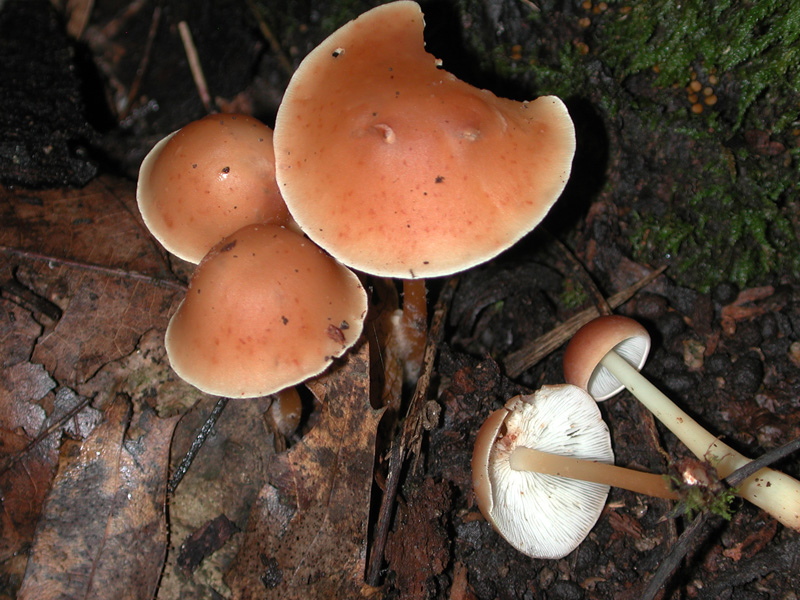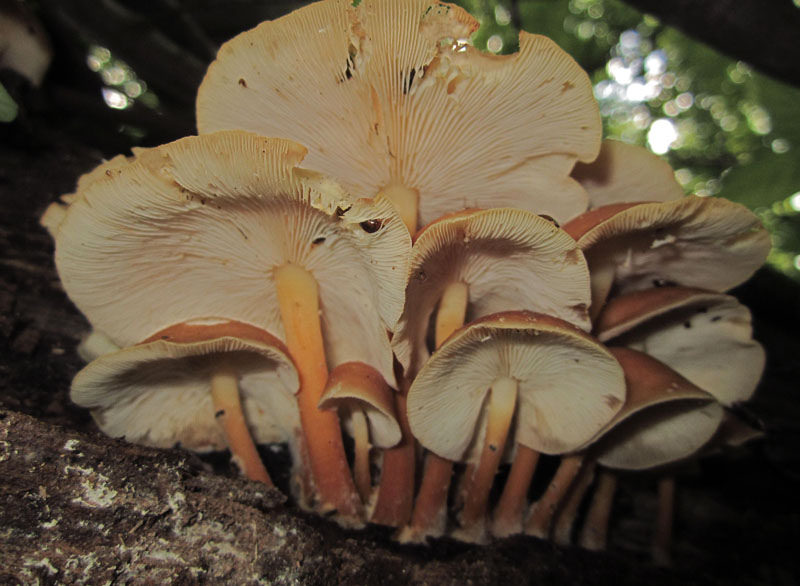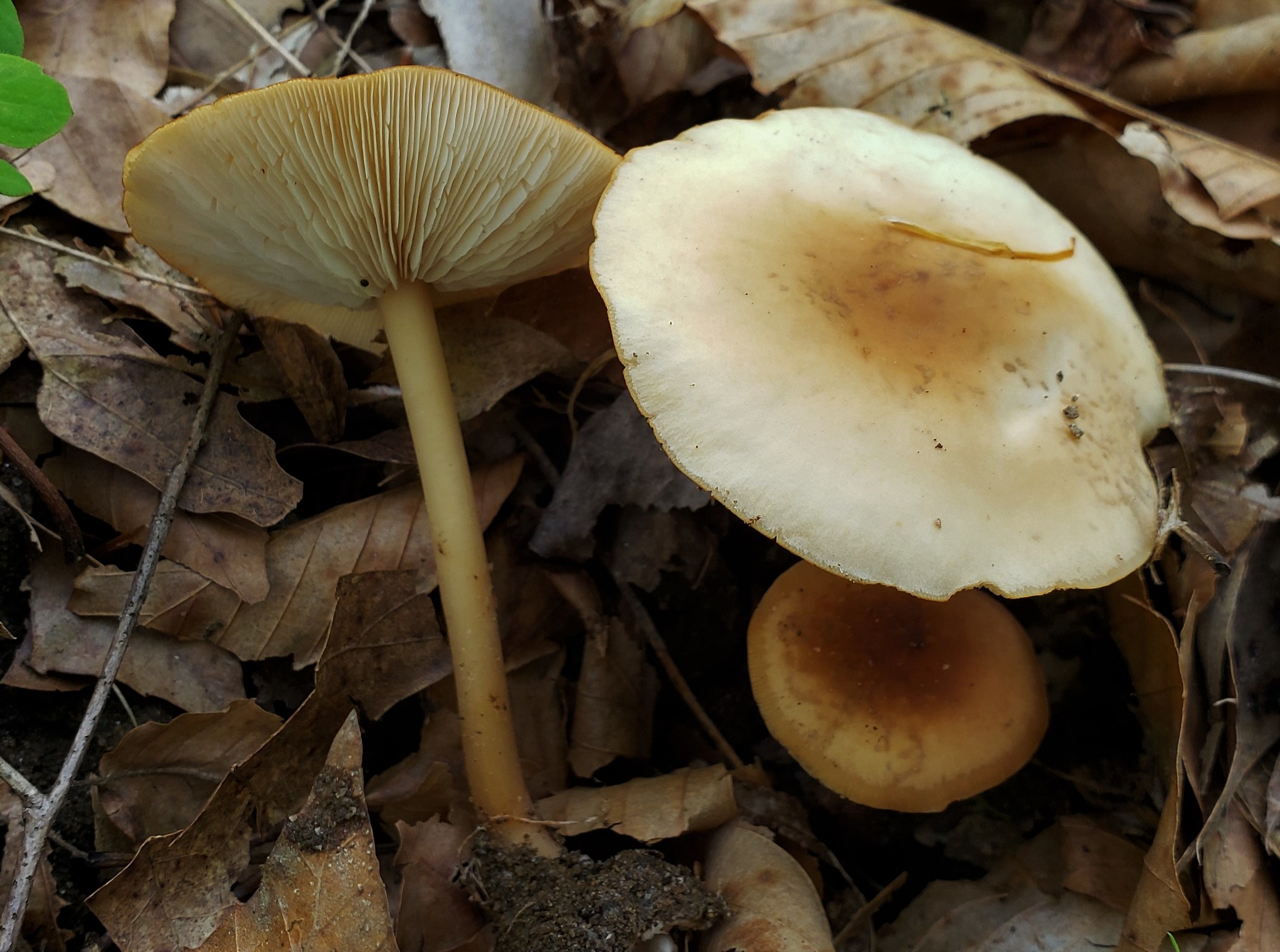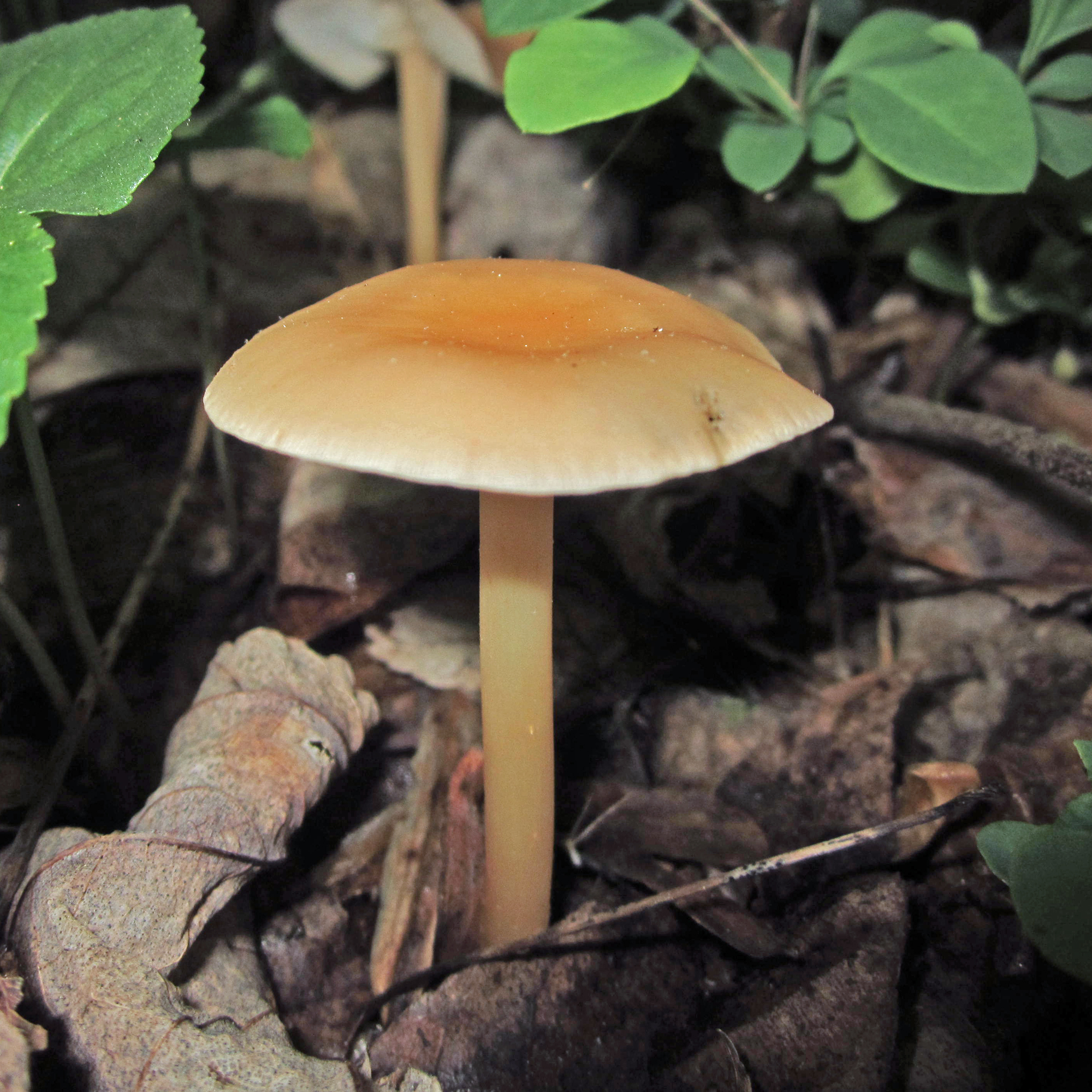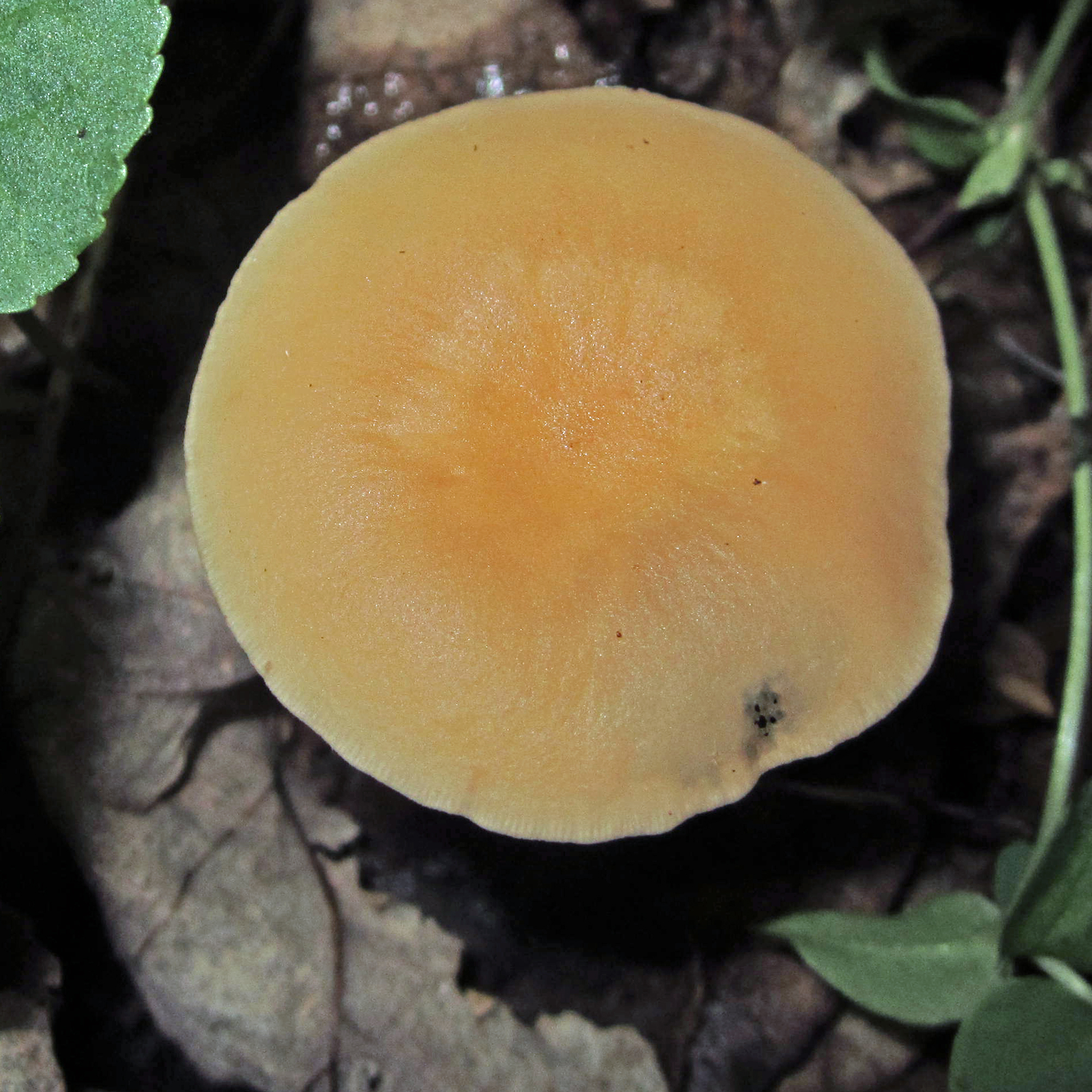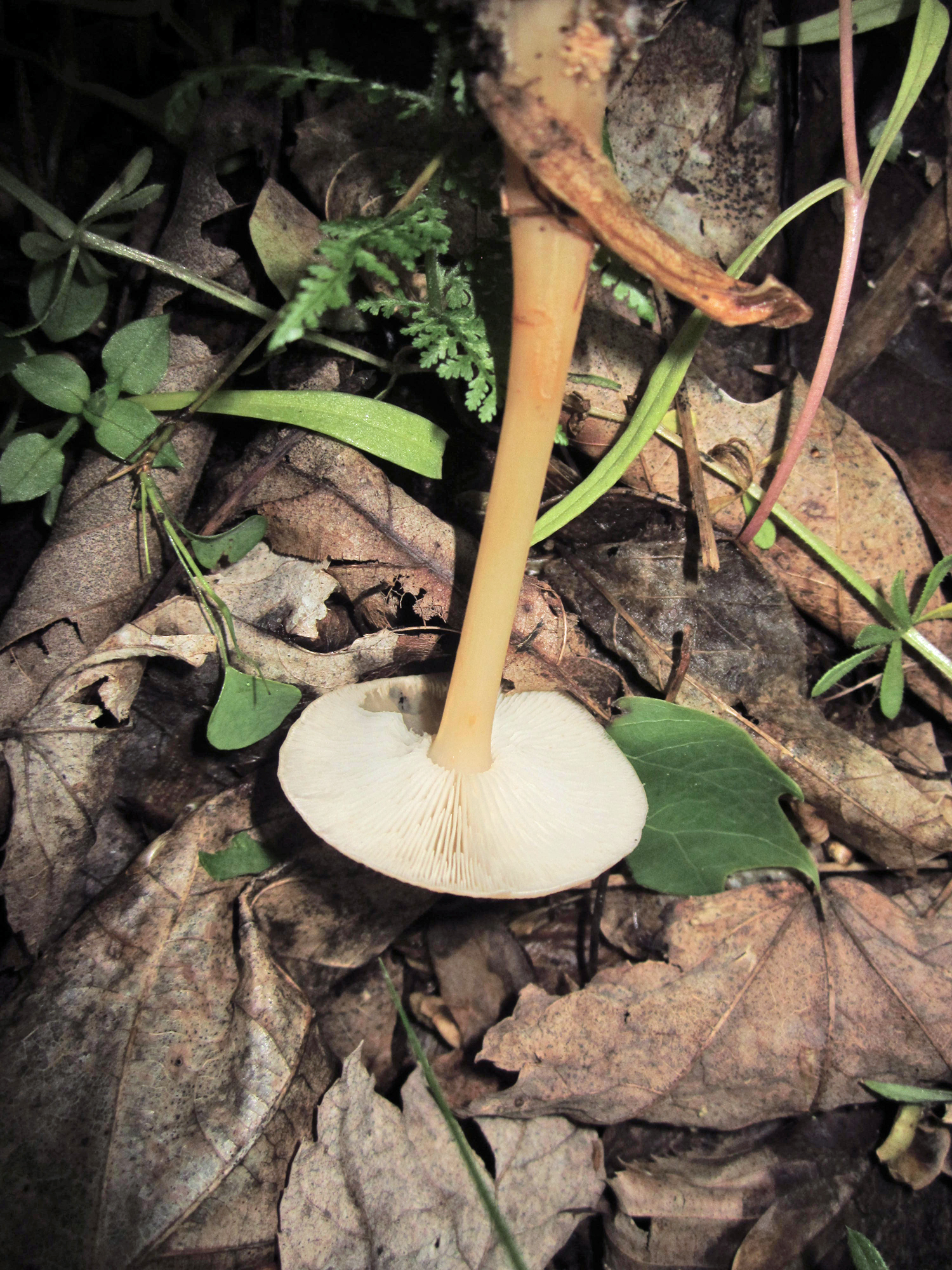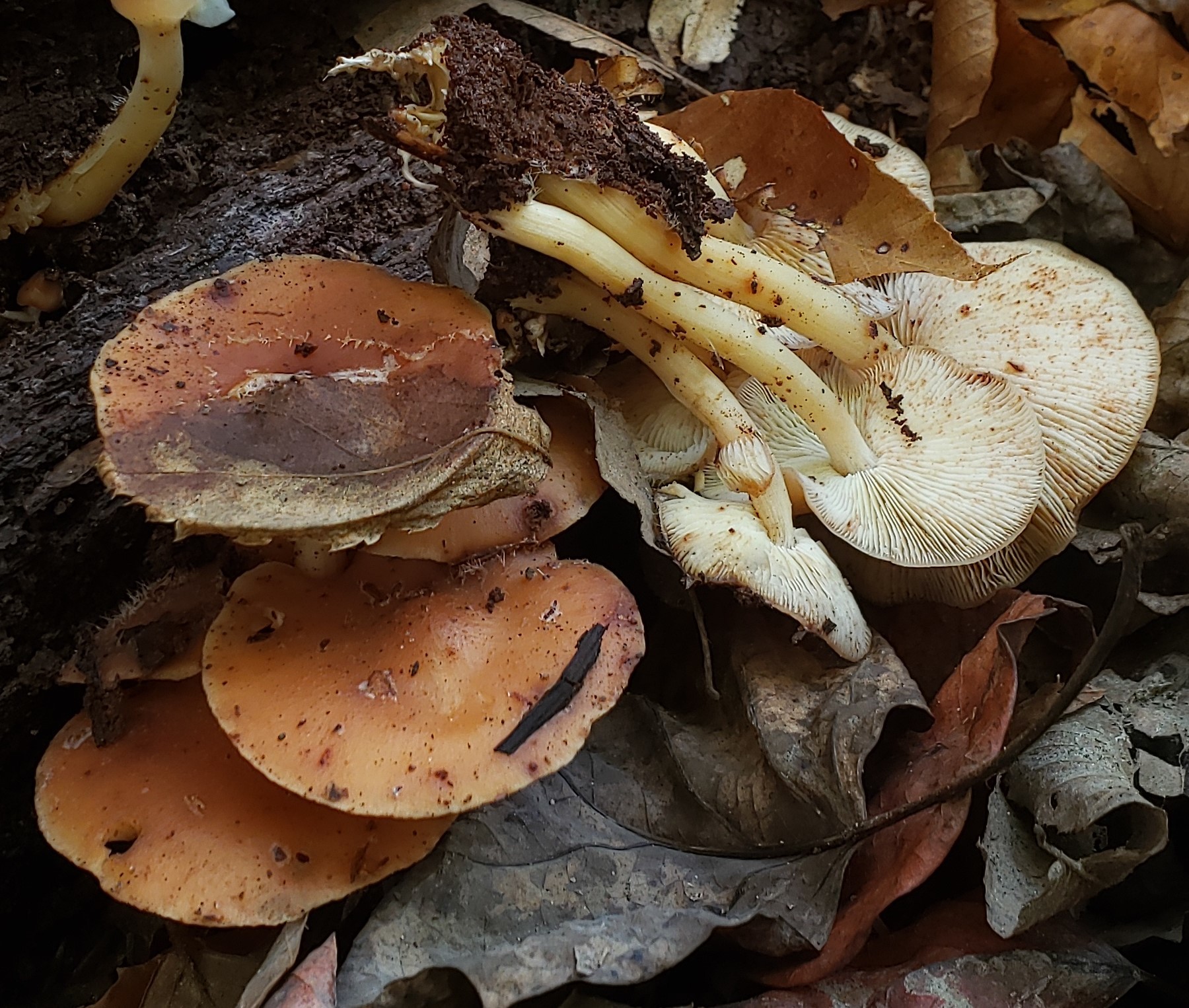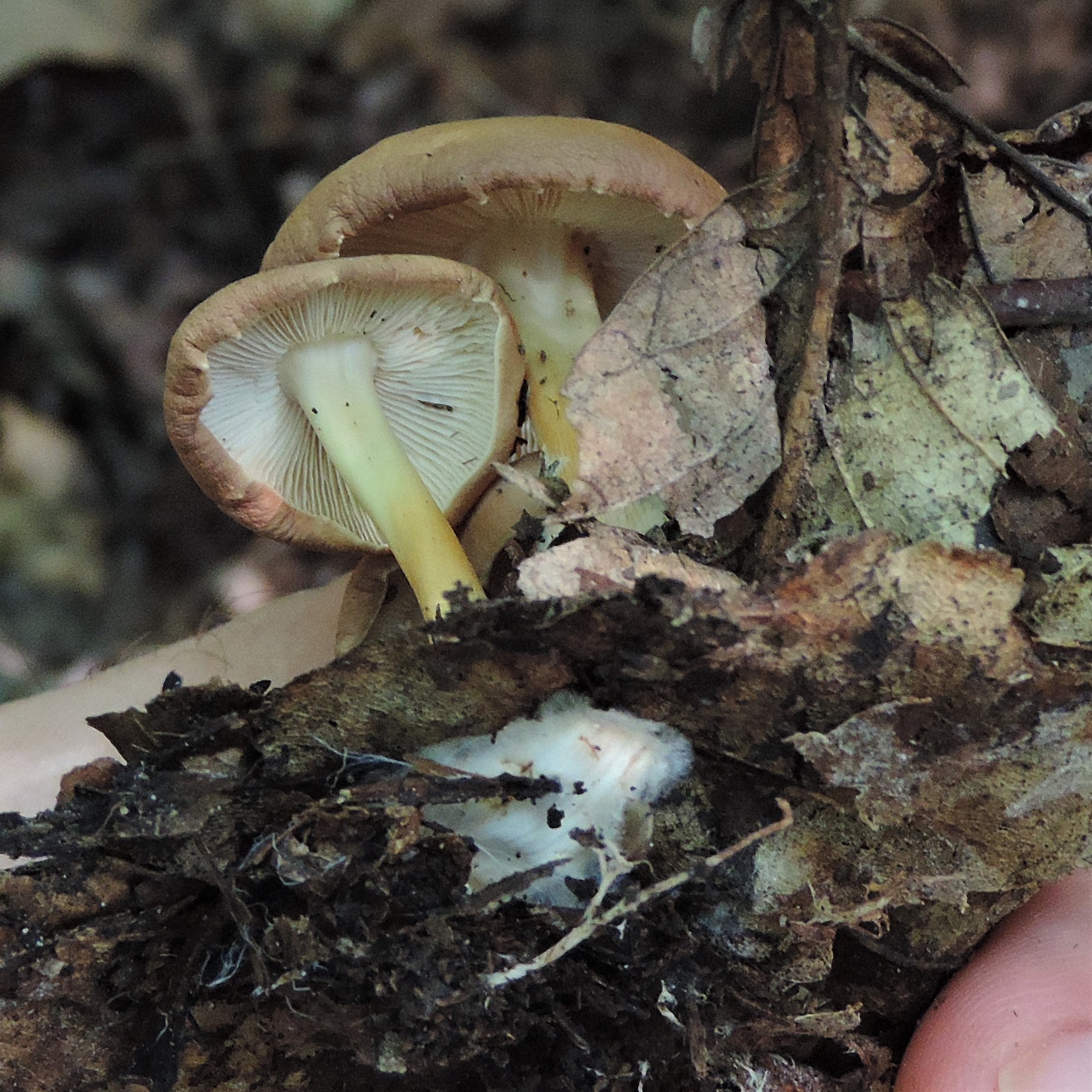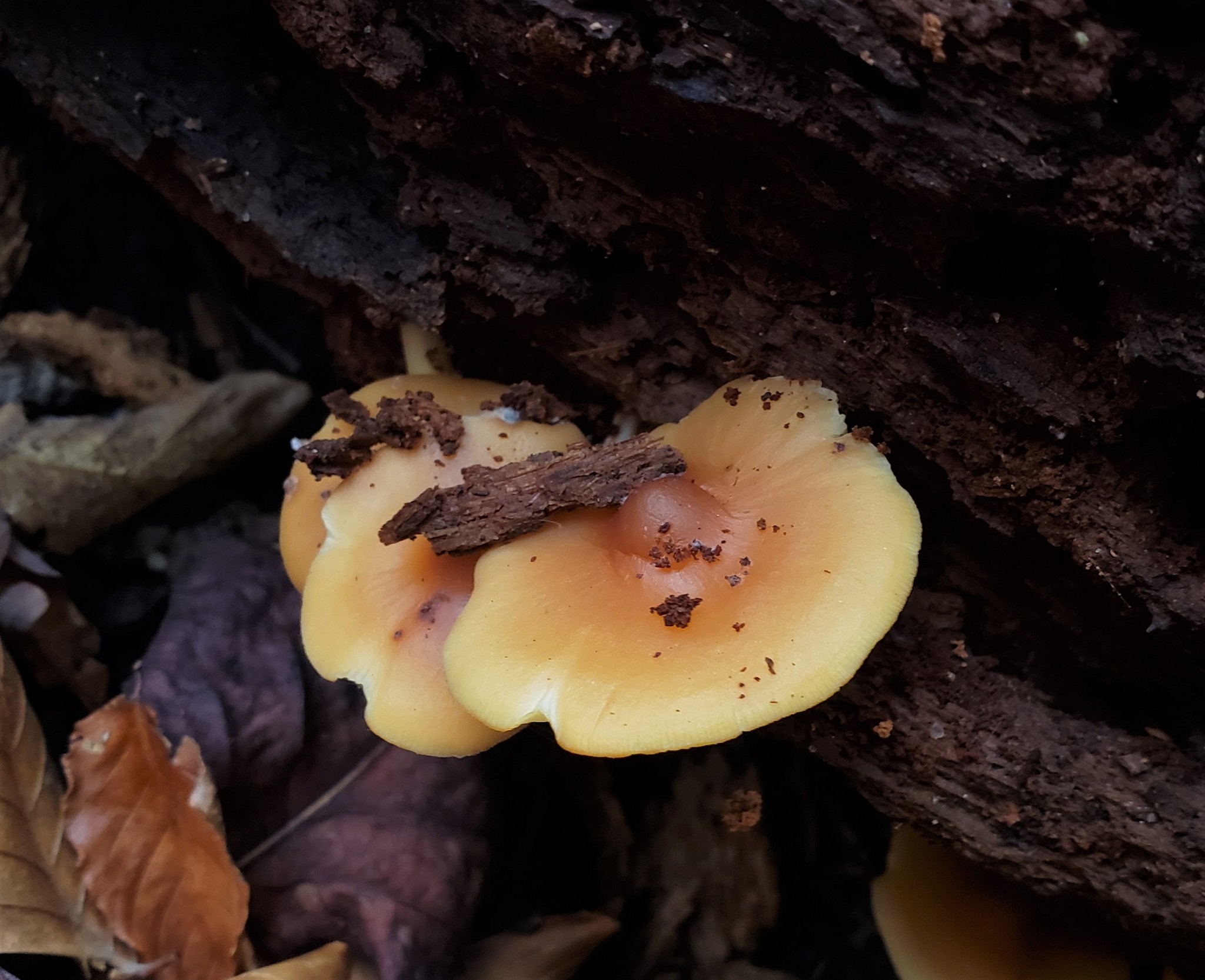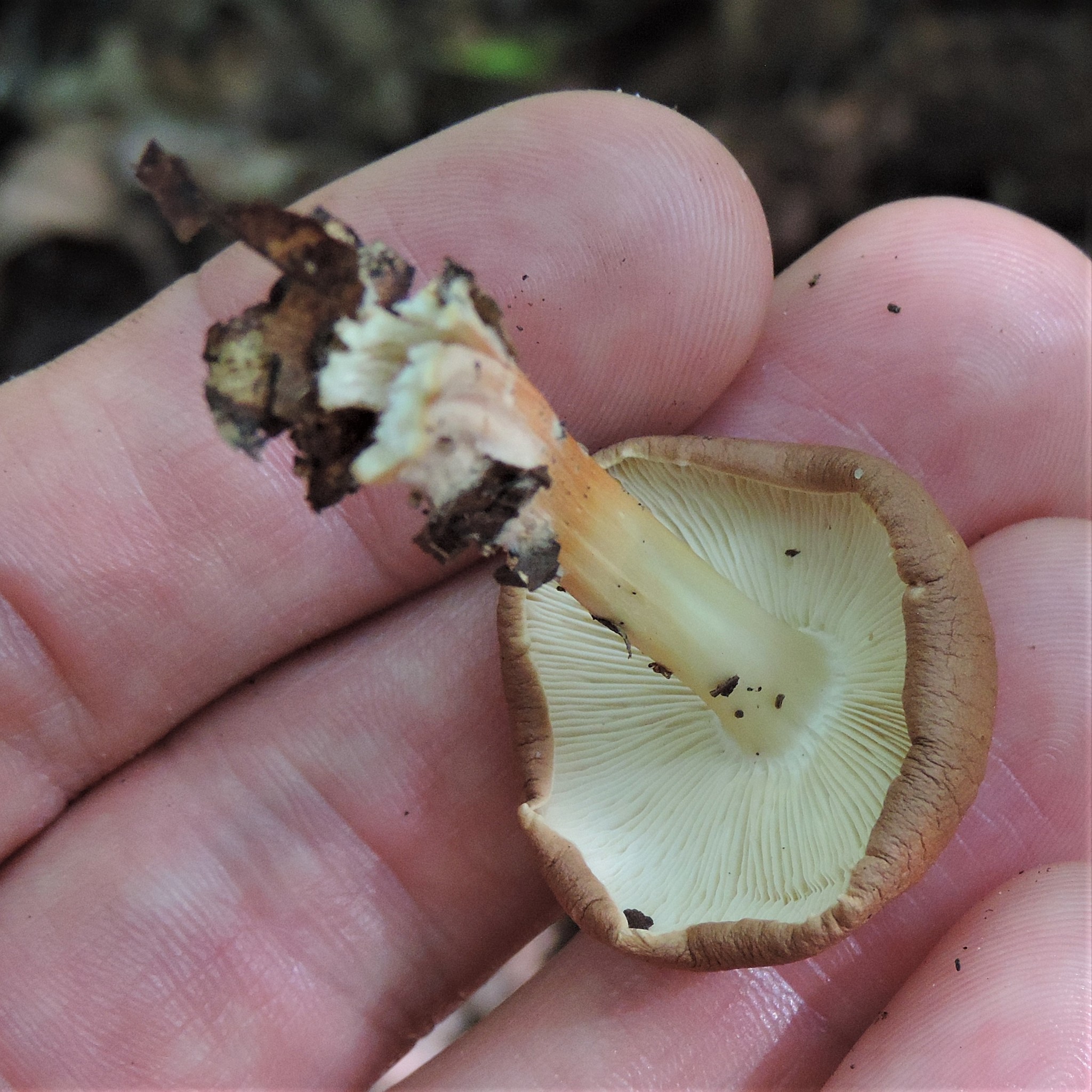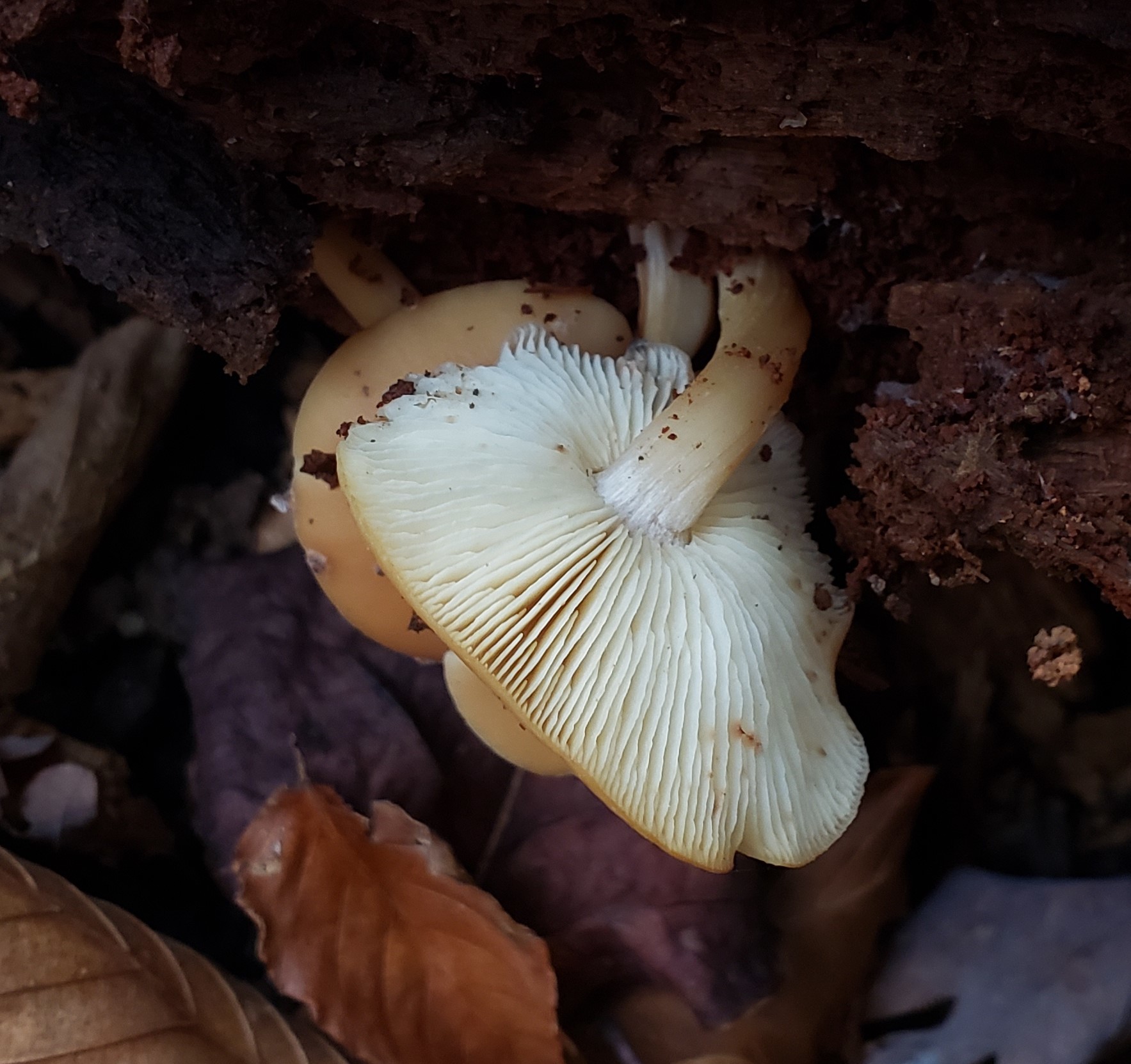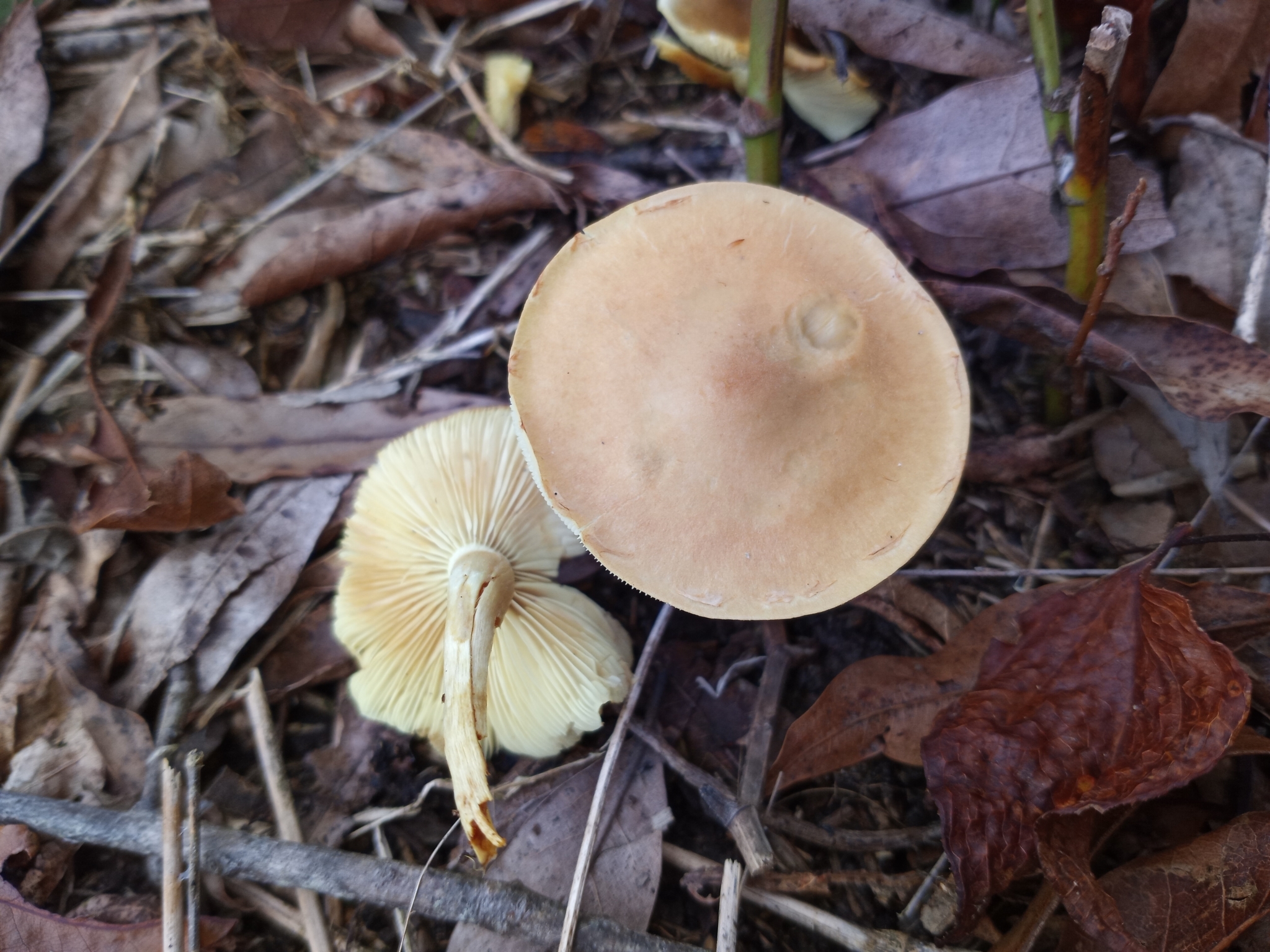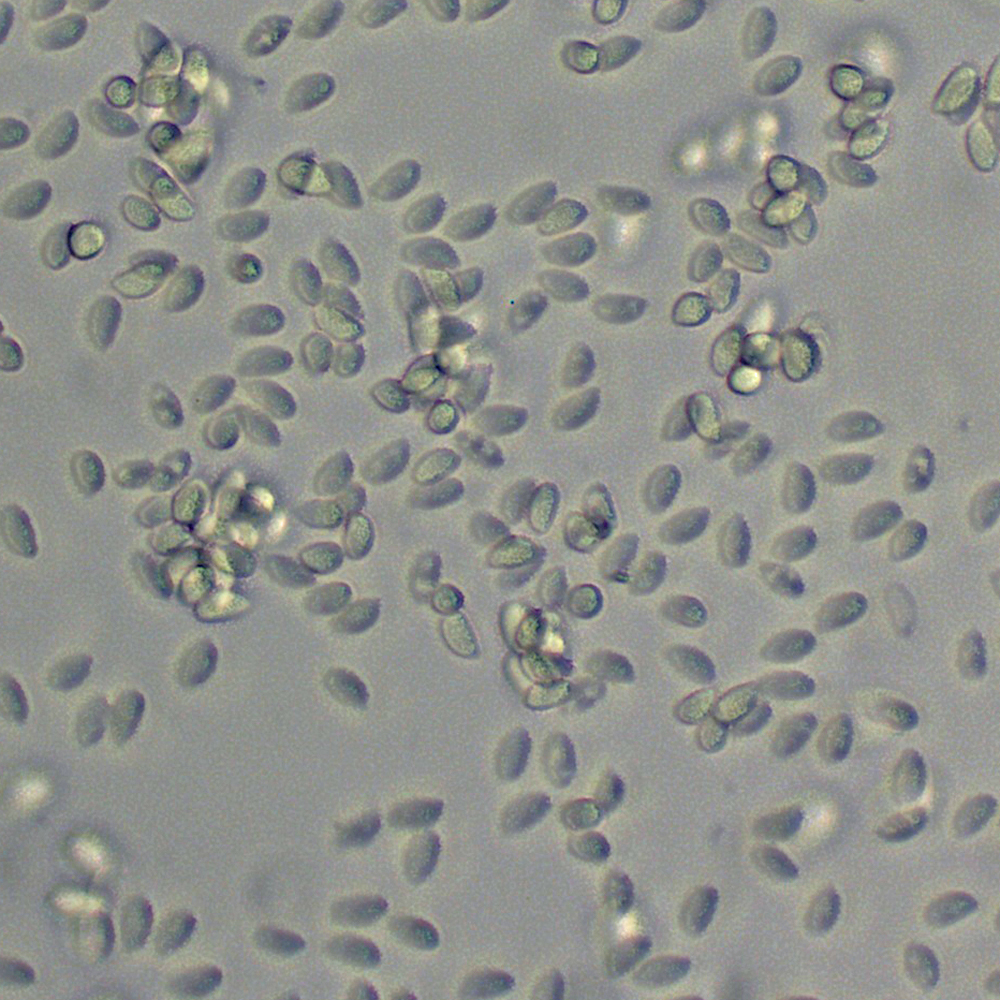

 Synonyms: Collybia, Oak Collybia, Oak-loving Gymnopus.
Synonyms: Collybia, Oak Collybia, Oak-loving Gymnopus.











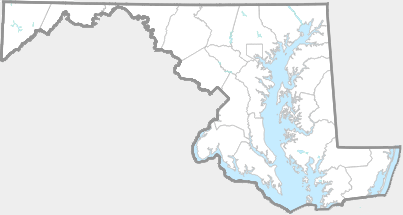
Cap: Dark reddish-brown, often with light margin; smooth, dry; convex to flat. Gills: White/pink/yellow-orange; crowded. Stalk: Light at top, darker below; may be slightly twisted or flattened; usually thin white rhizomorphs at base (J. Solem, pers. comm.).
Scattered, groups on hardwood and conifer twigs and leaf litter (J. Solem, pers. comm.).
There are 77 records in the project database.
| GA | AL | WA | FR | CL | MO | HO | BA | BC | HA | CE | PG | AA | CV | CH | SM | KE | QA | CN | TA | DO | WI | SO | WO |
